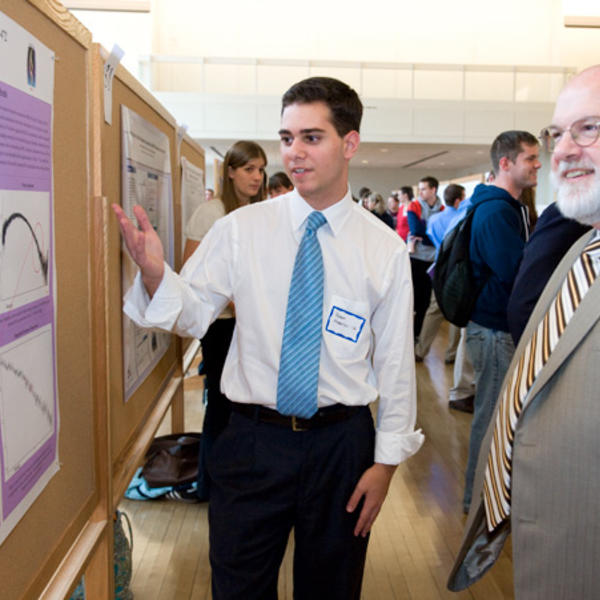Research conducted by Robert Nazarian ’12, a physics and mathematics double major, offers insight into the scientific and procedural factors that led to the explosion of the BP Deepwater Horizon oil rig which caused millions of gallons of crude petroleum to flow into the Gulf of Mexico for three months last year. His original research project, which included a study of the physics of the explosion, interviews with key government and industry officials, and review of published and unpublished reports, concludes that crew members and their bosses in the rig could have avoided the rig’s massive explosion.
His findings will be presented in two separate talks at Holy Cross. On March 29 at 7:30 p.m. in Rehm Library, he will present “The Tragedy of the BP Oil Spill: A Tale of Scientific Compromise and Executive Complacency.” On April 10 at 4 p.m. in Smith Labs Room 155, he will give a talk titled “Mathematizing Tragedy: Creating a Fluid Dynamics Model to Foreshadow the Deepwater Horizon Oil Spill” as part of Spring Eastern Sectional Meeting of the American Mathematical Society taking place on the College campus.
A native of North Providence, R.I., Nazarian created a unique mathematical and physical model which demonstrates how the system approached the disequilibrium that led to the explosion. The project was supplemented by many interviews, among them retired Coast Guard Commandant Admiral Thad Allen, who served as national incident commander for the spill. In addition, he spoke to members of the departments of Homeland Security, Energy, Defense, Transportation, and Interior, as well as industry experts.
Nazarian worked on the research last fall as part of his self-designed independent study course on Environmental Physics, under the guidance of Timothy Roach, associate professor and chair of physics, and Robert Garvey, associate professor of physics. He traces his interest in this topic to his first-year Montserrat seminars on environmental biology and policy taught by Robert Bertin, professor of biology, and Loren Cass, associate professor of political science.
“I thought that this project would allow me to venture into applied physics while continuing my interest in environmental studies,” he says. “And since the course allowed one-on-one interaction with my professors, I was able to explore several areas of environmental physics that were of particular interest to me.”
Nazarian, who has spent the last two summers on campus doing physics research, plans on pursuing a Ph.D. in physics, specializing in either environmental/applied physics or astrophysics.
Student's Research Shows BP Oil Rig Explosion Was Preventable

Faculty mentors and first-year Montserrat seminar helped inspire project
Read Time
2 Minutes

